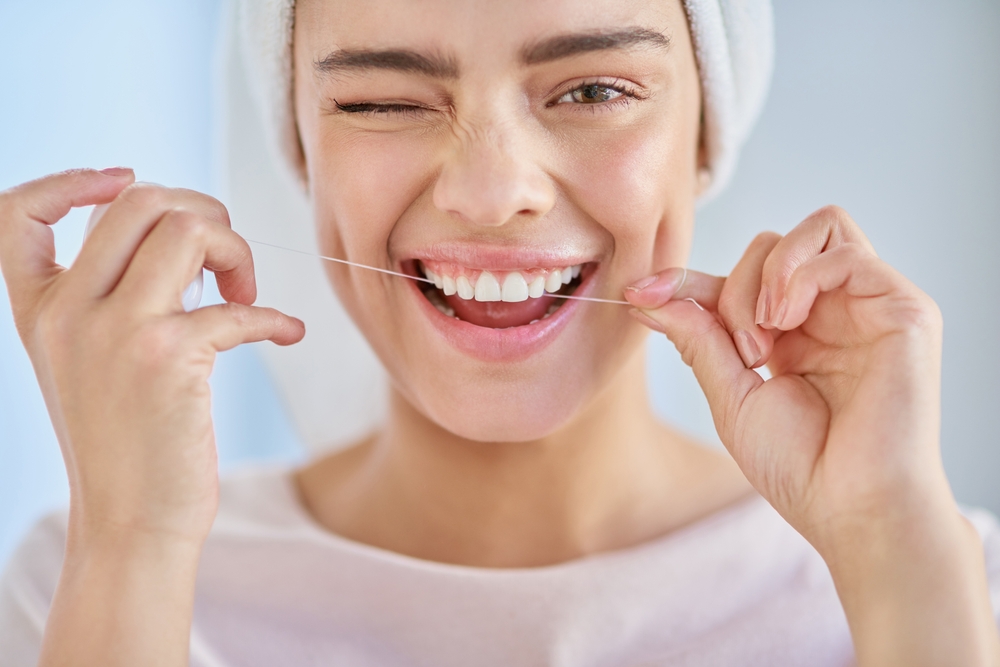Unleashing the Power of Oral Hygiene: Essential Tips and Tricks

Maintaining good oral hygiene is not merely about a radiant smile; it is a crucial aspect of overall health. In a bustling city like Toronto, the domain of dentistry is constantly evolving to provide comprehensive oral care. Yet, the fundamental journey towards stellar oral health begins at home. Here’s an elaborate guide to enhance your oral hygiene and, in turn, your overall health.
The Importance of Oral Hygiene
Maintaining good oral hygiene is crucial for averting oral and dental health conditions such as gum disease and tooth decay. Moreover, studies have shown a link between oral health and systemic health issues such as cardiovascular diseases and diabetes, underlining the significance of maintaining oral hygiene.
Daily Dental Care Routine
A daily routine including the three essentials, brushing, flossing, and mouthwash, can keep dental issues at bay. When choosing a toothbrush, choose one with soft bristles to prevent gum irritation. Likewise, fluoride toothpaste is preferable due to its ability to combat tooth decay.
Proper Brushing Technique
Effective brushing requires at least two minutes, twice daily, employing gentle circular motions to remove plaque without harming the gums. Remember to replace your toothbrush and other oral hygiene tools every three to four months. You may replace it sooner if the bristles are frayed.
Flossing Essentials
Daily flossing is pivotal in removing food particles and plaque between teeth. In this commonplace, cavities can develop. Proper technique involves using a fresh section of floss for each tooth and following the curves of your teeth to avoid causing irritation.
Choosing the Right Mouthwash
Mouthwash can help flush areas of the mouth that brushing and flossing can’t. Depending on your needs, various types of mouthwash, such as fluoride, antibacterial, or those for sensitive teeth, are available.
Nutrition and Oral Health
A diet rich in dairy, leafy greens, and lean proteins can promote strong teeth and gums. Conversely, sugary foods and drinks can lead to tooth decay. Opt for water or milk over sugary beverages to promote better oral health.
Avoiding Harmful Habits
Habits such as smoking, excessive alcohol consumption, and teeth grinding can be detrimental to oral health. Utilize resources like counseling or dental appliances to curb these habits.
Regular Dental Checkups
Regular visits to a Toronto dentist for checkups and cleanings are vital. These cleanings and fillings, when needed, help in the early detection, treatment, and prevention of oral health issues.
Oral Health for Different Age Groups
Children, adults, and seniors have different oral care needs. While children need supervision and education on oral hygiene, adults need to focus on prevention, and seniors need to focus on maintenance and treatment of dental issues.
Dealing with Common Dental Issues
Addressing common dental issues like bad breath or sensitive teeth requires a consistent oral hygiene routine coupled with professional consultations. Over-the-counter products may also provide relief.
The Connection: Oral Health and Systemic Health
Regular oral care can mitigate the risk of systemic health issues. Keeping your healthcare providers informed about your oral health is essential for comprehensive care.
Environmental and Sustainability Considerations
Opt for eco-friendly dental care options such as biodegradable toothbrushes and non-plastic flossers to minimize your environmental footprint.
Tips for Overcoming Dental Anxiety
Dental anxiety is common and can deter individuals from seeking necessary care. Practices like mindfulness meditation and discussing your fears with your Toronto dentist can alleviate anxiety.
Oral Hygiene for Special Needs
Individuals with disabilities or special needs may require customized oral hygiene routines and products. Seek advice from professionals skilled in special needs dentistry in Toronto to ensure optimal oral care.
Bonus Tips and Tricks!
Utilize a Tongue Scraper:
Besides brushing and flossing, using a tongue scraper can further promote oral hygiene. It helps in removing bacteria, food debris, and fungi from the surface of the tongue, which can contribute to better breath and overall oral health.
Oil Pulling:
An ancient practice, oil pulling involves swishing a tablespoon of natural coconut oil or sesame oil in your mouth for about 15-20 minutes before spitting it out. This practice is believed to draw out toxins and improve oral health. However, it’s not a replacement for traditional dental care routines.
Use of Herbal Mouthwashes:
Opt for herbal mouthwashes that are free from alcohol and other harsh chemicals. Herbal mouthwashes with ingredients like peppermint oil, aloe vera, and chamomile can be gentler on your gums while still promoting fresh breath and reducing bacteria.
Chew Sugar-free Gum:
Chewing some yummy sugar-free gum can help to stimulate saliva production, which is nature’s way of keeping the mouth clean and neutralizing acids. It’s a great tip for when you’re on the go and can’t brush your teeth immediately after a meal.
Incorporate Vitamin-rich Diet:
Incorporating meals rich in vitamins and minerals, especially Vitamin D and Calcium, can contribute to better oral health. They can help in maintaining healthy gums and teeth and in preventing gum diseases and tooth decay.
Implementing these unconventional tips and tricks along with your standard oral care routine can help you maintain a healthier and cleaner mouth. Remember, it’s always a good idea to discuss any new oral healthcare practices with your dentist to ensure they are right for you, especially if you have any preexisting dental conditions or concerns.
Armed with these tips and the expertise of a proficient Toronto dentist, maintaining excellent oral health is an achievable goal. An investment in your oral hygiene is an investment in your overall health, and the benefits are boundless. Adopt a meticulous oral hygiene routine, and witness the remarkable impact on your health and confidence.
